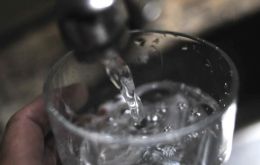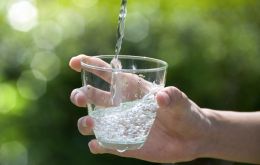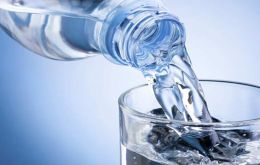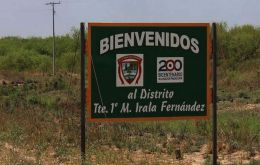MercoPress. South Atlantic News Agency
Tag: drinking water
-
Thursday, August 24th 2023 - 10:54 UTC
Uruguay: End of water crisis decreed

Uruguayan President Luis Lacalle Pou decreed the end of the water crisis affecting the South American country's capital, it was announced Wednesday in Montevideo. Lacalle said Decree 177 dated June 19, 2023, had been revoked, thus reinstating taxation on bottled water, it was explained.
-
Tuesday, July 11th 2023 - 09:16 UTC
Water crisis: Uruguay accepts Argentina's help

Uruguayan President Luis Lacalle Pou Monday said his country would be accepting Argentina's help to mitigate the water crisis but added that the amount of drinking water offered was nowhere near the needs to match the volumes consumed normally in Montevideo.
-
Thursday, July 6th 2023 - 11:59 UTC
Uruguay taking action to face water crisis: drinking water reserve is empty for Montevideo

Uruguay's Congress Wednesday unanimously approved the Water Emergency Fund to finance access to bottled water among other measures amid an unprecedented shortage of drinking water due to the drought the country is going through.
-
Monday, May 15th 2023 - 10:50 UTC
Shortage of drinking water in Montevideo getting critical

Montevideo Mayor Carolina Cosse will ask the National Emergency System (Sinae) to step in as the shortage of drinking water in the Uruguayan capital gets more and more serious. The city and the Metropolitan area is feared to run out of drinking water in between 20 to 30 days due to lack of rainfall.
-
Friday, March 24th 2023 - 10:27 UTC
Latin America and Caribbean: 37 million people lack drinking water

The Organization of American States (OAS) denounced this week that some 37 million people in the region lacked drinking water and cited climate change as a possible cause.
-
Wednesday, December 14th 2022 - 10:00 UTC
Accelerated action needed to ensure safe drinking-water, sanitation and hygiene, WHO report

Urgent action is needed globally and locally to achieve safe and sustainably managed water, sanitation and hygiene for all in order to prevent devastating impacts on the health of millions of people.
-
Saturday, December 3rd 2022 - 07:05 UTC
Mercosur countries “are not safe to drink the Water”, CDC advice for travelers

In a long list of “countries where it is not safe to drink water”, figure all South American countries and Mercosur members with the exception of Chile.
-
Friday, September 23rd 2022 - 18:12 UTC
Uruguayan authorities tackle arsenic in drinking water

Uruguayan authorities are reviewing their options to tackle the presence of arsenic in faucet water in various towns nationwide, it was reported this week.
-
Wednesday, June 22nd 2022 - 09:22 UTC
Paraguayan indigenous group seeks help from Spain

A Paraguayan indigenous community in the Chaco region has turned to Spain for help with the supply of drinking water and other basic resources following a lack of attention from local authorities, it was reported.
-
Friday, November 13th 2020 - 08:51 UTC
Ortega's Nicaragua approves the privatization of drinking water services

The Nicaraguan parliament, controlled by the party of leftist President Daniel Ortega, on Thursday, approved a reform that will open the door to the privatization of drinking water services in the Central American nation.
